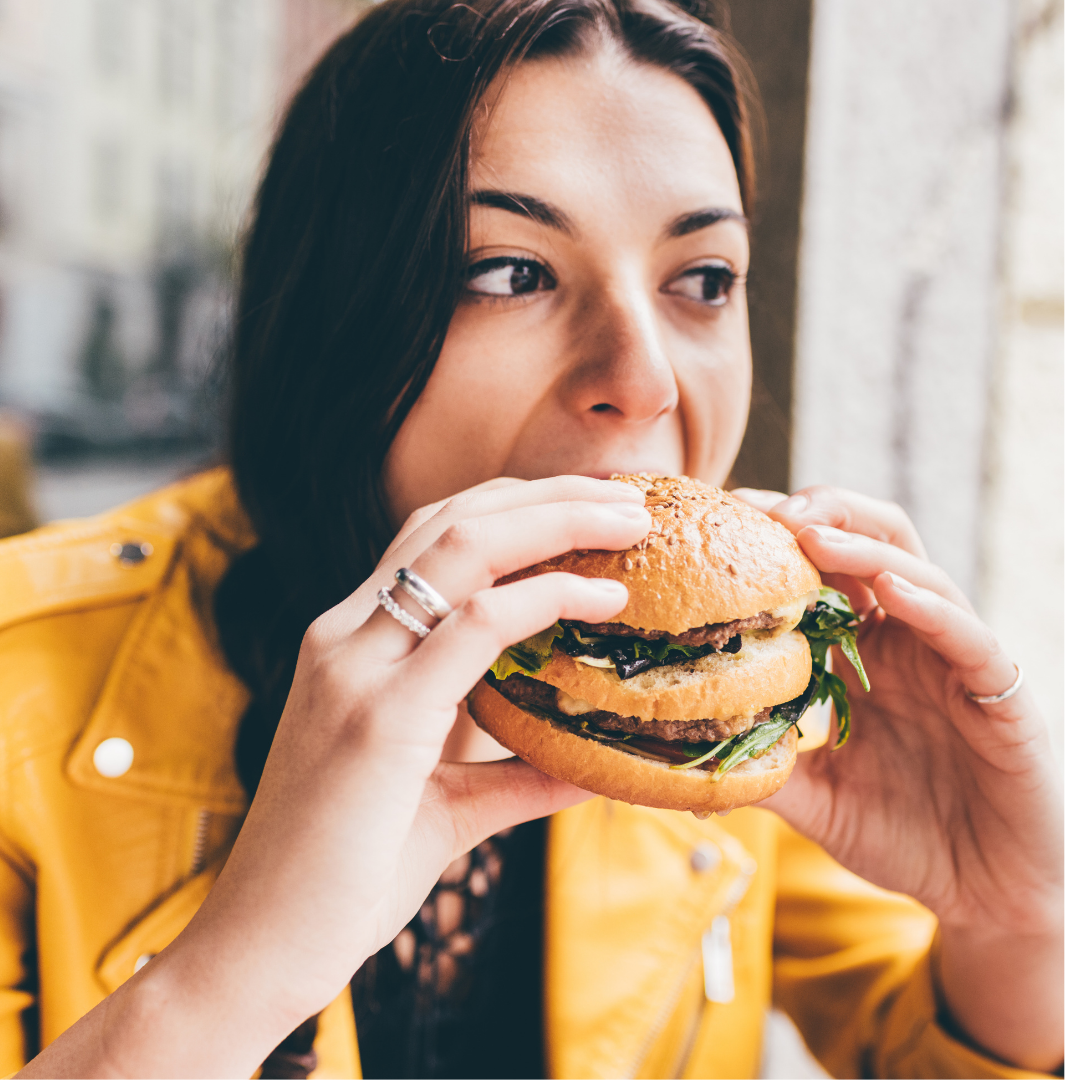Intuitive Eating II: Hunger is Your Friend

Contributed By: Amber Sullivan UGA Dietetic Student
Recap:
- What is Intuitive Eating
Intuitive eating is the art of listening to your body and eating whatever it desires whenever it desires it. Most importantly, intuitive eating is not a diet.
- Principle 1: Reject the Diet Mentality
The first step to intuitive eating is to disregard everything you've learned about nutrition from diet culture. No more counting calories, eating certain foods and feeling bad about it, or classifying foods as good and bad. And obviously, no more dieting, that's over and done with.
Principle 2: Honor Your Hunger
The second principle of intuitive eating is honoring your hunger. Seems simple enough. All you have to do is eat when you're feeling hungry, but this principle can be more challenging than it sounds.
Long, busy hours at work may only provide a particular time to eat. By the time you're able to sit down to eat, you're starving. This can result in overeating. One way to counter-act this problem is by snacking on something every 3-4 hours, so when you do have time to sit down for a meal, you won't accidentally overeat. Eating something every 3-4 hours will ensure that the carb stores in your liver won't run empty and result in extreme hunger. Another way is to simply plan ahead. Eat a big meal before going to work, so by the time your break comes around, you're not extremely hungry.
Chronic dieters struggle with honoring their hunger for an entirely different reason. Many chronic dieters have lost the ability to understand what it feels like to be hungry because they constantly ignore their hunger cues to maintain their restrictive diet. Even though someone may be eating a good amount of food, restricting food groups in a diet impacts hunger cues. For example, the keto diet calls for limiting your carb intake. Though you aren't purposefully limiting caloric intake, this diet still causes your body to enter into starvation mode due to lack of its primary energy source. This causes several effects in the body:
Feeling hungry due to lack of carbs and not due to calorie deficit
The breakdown of protein to be used as energy by being converted to glucose. This results in loss of muscle mass since protein is no longer being used to support and grow muscles.
Release of Neuropeptide Y (NPY) by the brain, a chemical that results in carbohydrate cravings. Evidence shows that NPY has a massive impact on eating behavior by increasing carb-rich meals. The only way to halt or stop the production of NPY is to eat carbohydrates.
Fun Fact: Your brain, nervous system, and blood cells only rely on sugars (carbohydrates) as a source of energy
Myth Buster: When you don't have enough carbs, your body breaks down muscle instead of fat! Very little if any stored fat can be converted to fuel for the body.
It's not just a lack of carbohydrates that will cause the body to release hunger cues. Lacking any nutrient can cause the sensation of hunger that includes a lack of fats and proteins. Bottom line: To honor your hunger, you have to eat fats, proteins, and carbohydrates.
As a result of restrictions and their effects, many long-time dieters have to learn once again what it feels like to be hungry. Hunger can present itself in different ways. Some people get a slight headache or experience lightheadedness, others have gurgling in the stomach, some experience difficulty concentrating or irritability, and others feel faint. As someone relearning their hunger cues, it is vital to check in with yourself and evaluate your hunger every time you sit down for a meal or are snacking.
Lastly, honoring your hunger doesn't mean you can only eat when you feel hungry (That's dieting culture! Remember Principle 1 of Intuitive Eating). If you're at a social gathering and feel like eating even though you're not hungry, then it's perfectly fine to get a plate. Don't feel shameful or feel like you did something wrong. Intuitive eating is not a diet, and there are no strict rules to follow. Intuitive eating is all about listening to you.
Resources:
Tribole, Evelyn, and Elyse Resch. Intuitive Eating: A Revolutionary Anti-Diet Approach. Fourth Edition ed., St. Martin's Publishing Group, 2020.
